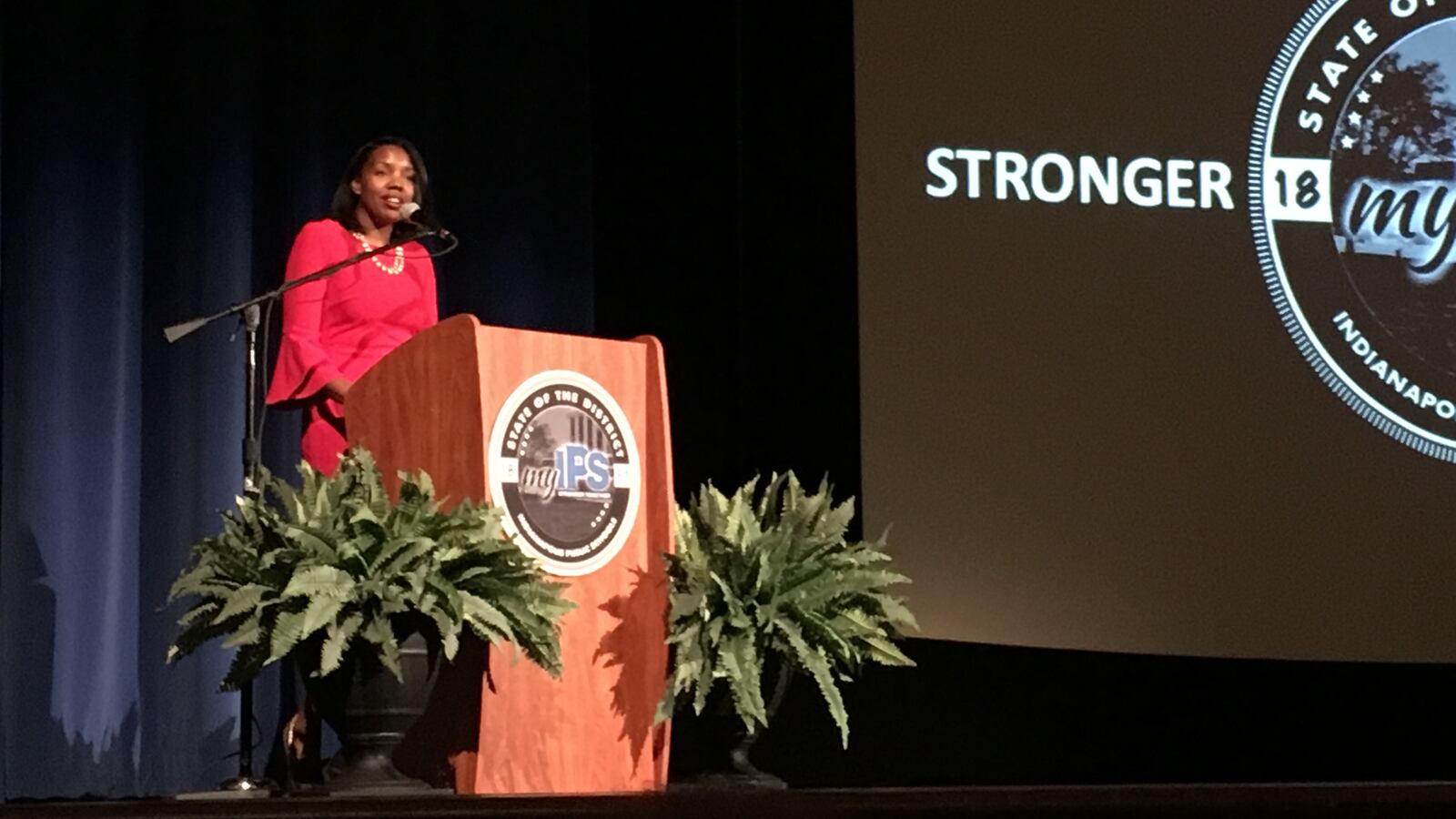Bringing her signature personable approach to her first “State of the District” address Wednesday night, new Indianapolis Public Schools Superintendent Aleesia Johnson emphasized a sense of community beyond classroom walls.
Her 45-minute speech in the Shortridge High School auditorium touted neighborhood and corporate partnerships and outreach into parent, Latino, and alumni communities. Johnson also promised further engagement, asking community members to give feedback to the district during town hall meetings next month.
“Indianapolis Public Schools will never stop working together to improve our community and our neighborhoods,” Johnson said to a crowd of about 200 people. “We will always be a part of the fabric of Indianapolis.”
Her commitment to improving community engagement comes at a critical time as the district forges its path in a new era of education, in which it has a smaller footprint and a new philosophy on working with charter operators.
The district has leveraged its connections to help turnaround efforts and gain traction for last year’s referendums approving tax increases to support schools. And Johnson will need continued support as her administration works to address still-struggling schools and faces further budget cuts and possible school closures — tough issues that she nodded to but didn’t dig into Wednesday night.
“It took some tough decisions and courageous leadership to get to where we are this evening and undoubtedly, tough decisions lie ahead,” Johnson said. “However, I know that I, along with our board, remain committed to making the best decisions we can that we believe will ultimately be in the best interest of our students.”
Johnson also outlined other priorities for the district, such as pursuing high-quality instruction and transparent, sustainable finances. She reiterated the need for the district to address racial gaps in test results and continue racial equity training, issues she’s made a point to confront in her first few months on the job.
“We believe there is power in our diversity — it is part of who we are and serves as a critical foundation for teaching our young men and women of color that they can overcome anything and accomplish even more,” Johnson said. “We can neither ignore nor be intimidated by the stark truths of the society in which we live.”
She highlighted some “bright spots” in test results, including narrowing gaps for students learning English and students with special needs, and ended with a fiery message.
“We will never consent to being viewed as a second-class school district,” she said. “We will never consent to our students being defined as less than the brilliant, resilient, and capable young people that they are.”
Johnson’s speech underscored her friendly, confident leadership style as she singled out more than a dozen individual students, graduates, educators, staff members, and partners by name throughout the speech.
But while Johnson had many allies in the crowd, some in attendance said they had wanted to hear more about her plans or tangible action steps.
“This felt like a pep rally,” said Bruce Ford, a behavior specialist at Shortridge, “because there was no substance to it.”
Ford said he wanted Johnson to more directly address the needs of black students and what she meant by wanting the district to have a “racial equity mindset.” He said he needed to see more data than the numbers that flashed across the screen behind Johnson.
“What is the ‘hope’? What is the ‘change’?” Ford said. “I see no real plans.”
Zoe Bardon, a Shortridge senior, also said she had expected more statistics and “content.”
“As a student, I don’t feel listened to,” she said. “I think there needs to be more listening, and less talking.”
Still, others felt the event offered an introduction to the new leader, who took over IPS on an interim basis in January and permanently in June. Nijah Ligon, a sophomore at George Washington High School, said Johnson came across as smart in outlining the district’s priorities.
“It’s a possibility we can achieve them if we push our schools hard enough,” Ligon said.

